|
|
|
|
|
|
|
|
|
No Arctic events are scheduled for today.
|
Media
Giant Fuzzy Discs and Thermal Cameras: New Oil Spill Cleanup Tech is Coming to Alaska. Protections for oil tankers crossing Prince William Sound will get major upgrades this summer, including beefy new tugs with more heat-sensing cameras to swiftly find spills and huge skimmers with fuzzy discs that sop up more oil. New oil-capturing barges will also arrive in Alaska soon, as Louisiana-based Edison Chouest Offshore prepares to replace Crowley Marine, the Florida company that long provided spill prevention services in the Sound. Anchorage Daily News
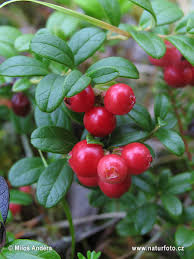 Warming Climate Affecting Alaska Berries. Warming Climate Affecting Alaska Berries. Despite the numbing cold this week, Alaska is reportedly warming so fast that the climate is affecting berries and their life cycles. UAF wants the public's help to uncover the mystery behind why cranberry flowers are blooming either too early or too late. They suspect it's in response to warmer temperatures. Cranberries are supposed to flower in the spring, but experts say they are seeing more bloom in fall. This is interfering with the timing for important pollinators and migrating animals that disperse their fruit. It's an unusual pattern, and UAF is trying to figure out if their theory makes sense by using a scanning electron microscope. You can help them by collecting frozen low bush cranberries and sending them in for research. WebCenter 11
Unalakleet Finds Additional Water Pipe Break, Waits as Tank Refills. According to City Manager Davida Hanson, another leak on the isolated FAA loop was found Tuesday morning, between the Bering Strait School District (BSSD) office and the Unalakleet school. BSSD is now putting in place an over-ground bypass line across the road between the two buildings. Hanson says that bypass pipe will remain there until the summer, when the ground thaws and permanent work can be done. KNOM
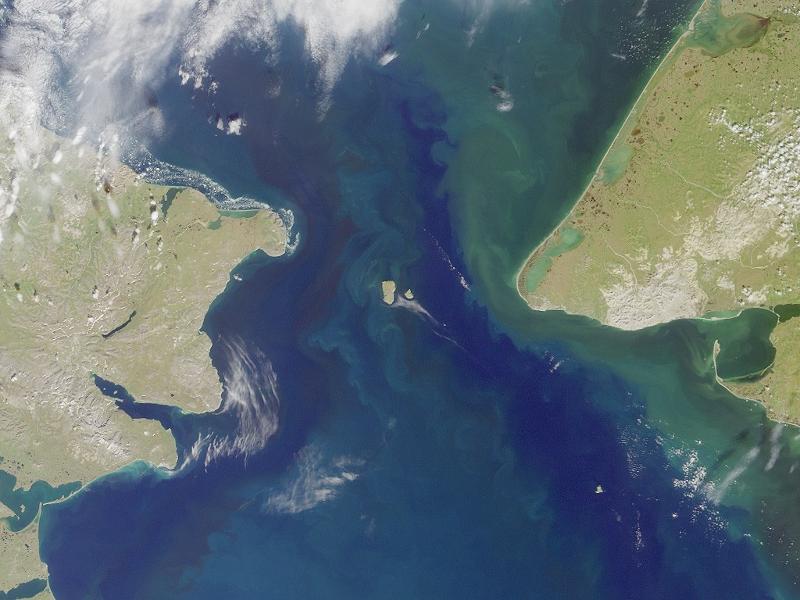 Preparing for Invasive Species in the Bering Sea. Preparing for Invasive Species in the Bering Sea. Invasive species have devastated marine ecosystems in the Lower 48 but, thanks to its icy waters, the Bering Sea has been largely unaffected. So far. "Right now, the Bering Sea is relatively pristine in terms of non-natives and invasives," explained Jes Reimer, a zoologist with the Alaska Center for Conservation Science (ACCS), a research arm of the University of Alaska Anchorage. "But what we keep hearing, what we keep seeing, is that waters are changing." The Cordova Times
Norway's Melting Glaciers Release Over 2,000 Artifacts. There's a reason history museums are packed with stone statues, pottery and arrow heads-these things resist decay while exposed to hundreds (or even thousands) of years in the sun, wind and rain. It's rare to find organic materials, like a woven shawl or a leather shoe, but there's at least one circumstance when these types of artifacts survive: when they're frozen in ice. Glaciers and permafrost hold many of these treasures, but as climate changes they're releasing their haul to the elements. And as Kastalia Medrano at Newsweek reports, this is exactly what's happening in Norway. A group of glacial archaeologists have recovered over 2,000 artifacts from the edges of Norway's glaciers, and the find promises to help researchers better understand the history of mountain populations. Smithsonian Magazine
Utqiagvik, Where the Climate Has Already Changed. Two things happened on top of the world this week. In Utqiaġvik on Jan. 22 the sun topped the horizon for the first time since mid-November. The day before that, Jan. 21, was the first time since Halloween that the town's thermometers recorded a below-normal daily average air temperature. The returning daylight for the country's farthest-north town is due to a predictable nod of the Earth back toward the sun. Utqiaġvik's second day of direct sunlight, Jan. 23, featured almost an hour's increase from the day before. The town will have four hours of daylight by the end of January. By May 11, there will be no night. Anchorage Daily News
 China Unveils its Arctic Ambitions, Declaring It's a "Near Arctic State." China Unveils its Arctic Ambitions, Declaring It's a "Near Arctic State." China is ready to take its place at the top of the world, according to the country's new Arctic policy paper. "China is an active participant, builder and contributor in Arctic affairs who has spared no efforts to contribute its wisdom to the development of the Arctic region," states the policy white paper, released last Friday, Jan. 26. In the policy, China says it's a "Near-Arctic State," one of the continental states that are closest to the Arctic. Nunatsiaq Online
Snapshots From a Land of Endless Night. For those who live just above the Arctic Circle, there is at least one day a year when the sun never pushes above the horizon. But there are many people who live even farther north who, after the winter solstice, don't see the sun for weeks. We asked readers who know arctic winters well to share their stories and photos of life in the polar darkness. Nearly 700 readers responded from areas all around the Arctic Circle. New York Times
|
|
Future Events
Global Leaders Forum: Finland's Priorities as Chair of the Arctic Council, February 7, 2018 (Washington, DC USA). The Center for Strategic & International Studies will host a conversation with Mr. Timo Soini, Minister of Foreign Affairs Finland. As Finland's chairmanship of the Arctic Council approaches the one year mark, Minister Soini will update attendees on Finland's priorities including environmental protection, strengthening connectivity, meteorological cooperation, and education. A critical partner of the United States in the High North, Finland continues to explore the Arctic's economic potential and advocate for the region's sustainable development, while also assuring the protection of the climate and ecosystems. Minister Soini will also discuss the increasing engagement of non-Arctic states in Arctic cooperation.
Alaska Forum on the Environment, February 12-16, 2018 (Anchorage, Alaska)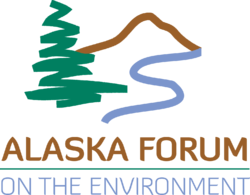 . AFE is a statewide gathering of environmental professionals from government agencies, non-profit and for-profit businesses, community leaders, Alaskan youth, conservationists, biologists and community elders. The diversity of attendees sets this conference apart from any other. The 2018 event will be our 20th year providing a strong educational foundation for all Alaskans and a unique opportunity to interact with others on environmental issues and challenges. . AFE is a statewide gathering of environmental professionals from government agencies, non-profit and for-profit businesses, community leaders, Alaskan youth, conservationists, biologists and community elders. The diversity of attendees sets this conference apart from any other. The 2018 event will be our 20th year providing a strong educational foundation for all Alaskans and a unique opportunity to interact with others on environmental issues and challenges.
** New this week **
A Changing Arctic, Registration closes March 1, 2018 (University of Oslo). The University of Oslo will offer a course this summer on the changing Arctic. Registration closes March 1st. The Arctic region has gained increased public, political, commercial and academic interest over the last decade. High-energy prices and technological advances have made it possible, if not yet commercially attractive, to exploit petroleum resources in the area. Climate change and the retraction of the polar ice have opened new sea transportation routes, considerably shortening the distance from Europe and North America to parts of Asia. The demand for high-quality white fish from the Barents Sea is steadily rising on international markets. States, international organizations and private interests, including emerging economies in Asia, now show a keen interest in the High North and the Arctic at large.
Methane Variation Over Terrestrial and Marine Arctic Areas (2010-2016): IASI Satellite Data, March 13, 2018 (Silver Spring, Maryland USA). There is evidence that methane is being released into the atmosphere at high northern latitudes as the Arctic warms up. Methane concentration in the Arctic lower troposphere was estimated between 2010 and 2016 with the Infrared Atmospheric Sounding Interferometer (IASI), a thermal IR spectrometer orbiting the Earth on a satellite MetOp-A. The area studied encompasses the Barents/ Kara seas and the Wester Siberian Lowland (WSL), one of the most important methane sources in high northern latitudes. This event is a NOAA's National Ocean Service Science Seminar.
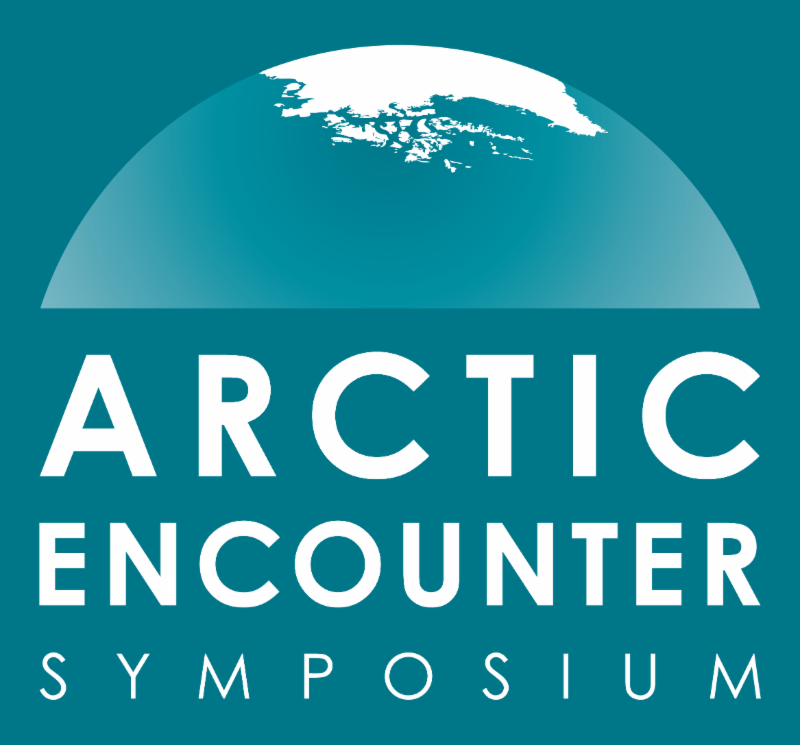 5th Annual Arctic Encounter Symposium (AES), April 19-20, 2018 (Seattle, WA, USA) 5th Annual Arctic Encounter Symposium (AES), April 19-20, 2018 (Seattle, WA, USA) - The Arctic Encounter, the largest annual Arctic policy conference in the U.S., will convene policymakers, industry leaders, scientists, Arctic artists and musical performers, and other stakeholders to debate and discuss emerging Arctic challenges and opportunities including policy, innovation, security, and development. The mission of AES is to raise awareness, engage challenges, and develop solutions for the future of the Arctic region and the people who live there. The 5th annual AES will take place in downtown Seattle at the Bell Harbor International Conference Center on Pier 66.
2018 North by North Festival, April 23-29, 2018 (Anchorage, Alaska USA). The North by North Festival captures the spirit of Alaska and the Arctic - to address our challenges and opportunities with Northern innovation and resilience, to build on a rich history and to ensure a future full of promise. The Festival is for the North, and organized by Northerners, with goals of sustainability, livability and growth. The Festival brings innovators from across Alaska, the nation and other Arctic regions to collaborate and address local and circumpolar challenges. Through knowledge, governance, business, design, film, music, food, literature and art, we celebrate the North.
Council on Earth Cryology, May 15-16, 2018 (Moscow, Russian Federation). Scientific council on Earth cryology of Russian Academy of Sciences together with Department of Geocryology of Faculty of Geology of Lomonosov Moscow State University, Institute of the Earth Cryosphere, the Tyumen Scientific Senter, Melnikov Permafrost Institute (Yakutsk) of the Siberian Branch of the Russian Academy of Science holds on May 15 - 16, 2018 an enlarged meeting with participation of the Russian and foreign scientists, engineers and experts: "Current problems of geocryology." The meeting of Scientific council on Earth Cryology of RAS has the status of the International meeting. The publication of materials in the collection of reports is planned. Submissions (Submission Form), offers on cooperation, support of a conference and papers (Sample of Paper) to e-mail: cryoconf18@gmail.com
The Effects of Climate Change on the World's Oceans, June 4-8, 2018 (Washington, DC USA). The 4th International Symposium will bring together experts from around the world to better understand climate impacts on ocean ecosystems - and how to respond. The event is hosted by a variety of groups including International Council for the Exploration of the Sea (ICES), N. Pacific Marine Science Organization (PICES), Intergovernmental Oceanographic Commission of UNESCO (IOC), and Food and Agriculture Organization of the United Nations (FAO).
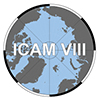
International Conference on Arctic Margins (ICAM) VIII, June 11-14, 2
The international Conference on Arctic Margins (ICAM) is a forum for earth scientists who study the Arctic. It was founded to help understand the little known Arctic geology and to foster cooperation and collaboration among Arctic researchers. There have been 7 meetings since its inception in 1991. See here for more information.
 POLAR 2018, June 15-27, 2018 (Davos, Switzerland). POLAR2018 is a joint event from the Scientific Committee on Antarctic Research (SCAR) and the International Arctic Science Committee (IASC). The SCAR meetings, the ASSW and the Open Science Conference will be hosted by the Swiss Federal Institute for Forest, Snow and Landscape Research WSL under the patronage of the Swiss Committee on Polar and High Altitude Research. The WSL Institute for Snow and Avalanche Research SLF is organizing POLAR2018. POLAR 2018, June 15-27, 2018 (Davos, Switzerland). POLAR2018 is a joint event from the Scientific Committee on Antarctic Research (SCAR) and the International Arctic Science Committee (IASC). The SCAR meetings, the ASSW and the Open Science Conference will be hosted by the Swiss Federal Institute for Forest, Snow and Landscape Research WSL under the patronage of the Swiss Committee on Polar and High Altitude Research. The WSL Institute for Snow and Avalanche Research SLF is organizing POLAR2018.
Arctic Observing Summit 2018, June 24-26, 2018 (Davos, Switzerland). The Arctic Observing Summit (AOS) is a high-level biennial summit that provides a platform to address urgent and broadly recognized needs of Arctic observing across all components of the Arctic system. AOS 2018 will be held in Davos, Switzerland ( June 24-26) and will focus on pressing issues in the implementation and support of sustained observations that can be addressed through a business-case lens. To that end, short submissions are requested that address any and all aspects of the overarching theme and sub-themes. Additional information can be found here.
17th International Congress of Circumpolar Health (ICCH17), August 12-15, 2018 (Copenhagen, Denmark). The ICCH congresses are held every third year in different locations in the circumpolar area and represent the largest scientific meetings worldwide on circumpolar health. The ICCH congresses serve as the primary source of information exchange and scholarly communication in issues relating to circumpolar health. More than 750 participants generally register and participate in each Congress, and more than 400 scientific papers or posters are usually presented.
UArctic Congress 2018, September 3-7, 2018 (Oulu and Helsinki, Finland).
The UArctic Congress 2018 will bring together key UArctic meetings and a science conference into one single gathering, including business meetings of the Council of UArctic, Rectors' Forum, Student Forum, and Thematic Networks & UArctic Institutes Leadership Team. The Congress is an integral part of the Finland's Arctic Council chairmanship program, and open to the public. The event will highlight the themes and priorities of the Finnish chairmanship, including the goals of the United Nations' 2030 Agenda for Sustainable Development, and the Paris Agreement under the UN Framework Convention on Climate Change.
The second Arctic Biodiversity Congress is hosted by the Conservation of Arctic Flora and Fauna (CAFF), the biodiversity working group of the Arctic Council, and the Ministry of the Environment, Finland. The second Arctic Biodiversity Congress will build on the success of the first Congress, held in 2014 in Trondheim, Norway, and will bring together scientists, policymakers government officials, Indigenous representatives, Traditional Knowledge holders, industry, non-governmental organizations, and others to promote the conservation and sustainable use of Arctic biodiversity.
|
|

  
4350 N. Fairfax Drive, Suite 510
Arlington, VA 22203, USA
External links in this publication, and on the USARC's World Wide Web site ( www.arctic.gov) do not constitute endorsement by the US Arctic Research Commission of external Web sites or the information, products or services contained therein. For other than authorized activities, the USARC does not exercise any editorial control over the information you may find at these locations. These links are provided consistent with the stated purpose of this newsletter and the USARC Web site.
|
|
|
|
|
|
|
|
|
 Warming Climate Affecting Alaska Berries. Despite the numbing cold this week, Alaska is reportedly warming so fast that the climate is affecting berries and their life cycles. UAF wants the public's help to uncover the mystery behind why cranberry flowers are blooming either too early or too late. They suspect it's in response to warmer temperatures. Cranberries are supposed to flower in the spring, but experts say they are seeing more bloom in fall. This is interfering with the timing for important pollinators and migrating animals that disperse their fruit. It's an unusual pattern, and UAF is trying to figure out if their theory makes sense by using a scanning electron microscope. You can help them by collecting frozen low bush cranberries and sending them in for research. WebCenter 11
Warming Climate Affecting Alaska Berries. Despite the numbing cold this week, Alaska is reportedly warming so fast that the climate is affecting berries and their life cycles. UAF wants the public's help to uncover the mystery behind why cranberry flowers are blooming either too early or too late. They suspect it's in response to warmer temperatures. Cranberries are supposed to flower in the spring, but experts say they are seeing more bloom in fall. This is interfering with the timing for important pollinators and migrating animals that disperse their fruit. It's an unusual pattern, and UAF is trying to figure out if their theory makes sense by using a scanning electron microscope. You can help them by collecting frozen low bush cranberries and sending them in for research. WebCenter 11 Preparing for Invasive Species in the Bering Sea. Invasive species have devastated marine ecosystems in the Lower 48 but, thanks to its icy waters, the Bering Sea has been largely unaffected. So far. "Right now, the Bering Sea is relatively pristine in terms of non-natives and invasives," explained Jes Reimer, a zoologist with the Alaska Center for Conservation Science (ACCS), a research arm of the University of Alaska Anchorage. "But what we keep hearing, what we keep seeing, is that waters are changing." The Cordova Times
Preparing for Invasive Species in the Bering Sea. Invasive species have devastated marine ecosystems in the Lower 48 but, thanks to its icy waters, the Bering Sea has been largely unaffected. So far. "Right now, the Bering Sea is relatively pristine in terms of non-natives and invasives," explained Jes Reimer, a zoologist with the Alaska Center for Conservation Science (ACCS), a research arm of the University of Alaska Anchorage. "But what we keep hearing, what we keep seeing, is that waters are changing." The Cordova Times China Unveils its Arctic Ambitions, Declaring It's a "Near Arctic State." China is ready to take its place at the top of the world, according to the country's new Arctic policy paper. "China is an active participant, builder and contributor in Arctic affairs who has spared no efforts to contribute its wisdom to the development of the Arctic region," states the policy white paper, released last Friday, Jan. 26. In the policy, China says it's a "Near-Arctic State," one of the continental states that are closest to the Arctic. Nunatsiaq Online
China Unveils its Arctic Ambitions, Declaring It's a "Near Arctic State." China is ready to take its place at the top of the world, according to the country's new Arctic policy paper. "China is an active participant, builder and contributor in Arctic affairs who has spared no efforts to contribute its wisdom to the development of the Arctic region," states the policy white paper, released last Friday, Jan. 26. In the policy, China says it's a "Near-Arctic State," one of the continental states that are closest to the Arctic. Nunatsiaq Online






